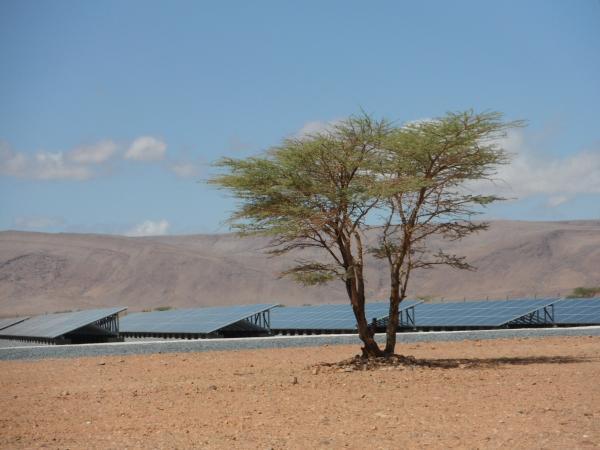
- First solar project with ONEE receives EUR 129m in financing for the construction of seven photovoltaic power plants across Morocco
- Major project to provide small and medium-sized municipalities with high-priority drinking water infrastructure
- Increased support for Moroccan firms
During an official visit to Morocco, European Investment Bank (EIB) Vice-President Emma Navarro strongly reaffirmed the quality of the 40-year-old partnership between the EU bank and Morocco and announced four new finance agreements in strategic sectors for the country: renewable energy development, the modernisation of drinking water infrastructure, and support for the private sector.
This financing totals EUR 401.5m (around MAD 4.29bn). They are fully in line with the strategic economic, social and environmental policies of the European Union and Morocco, and benefit from EIB expertise combined with attractive financial terms.
“This large-scale support for Morocco strongly reaffirms the EIB's commitment to promoting a green and inclusive economy,” said EIB Vice-President Emma Navarro. “The development of renewable energies and drinking water infrastructure on the ground and support for businesses are financing projects with high economic, social and environmental impact in Morocco. As the EU climate bank, the EIB has made this financing a key priority. In this way, we are preparing the future for younger generations.”
Green Deal: financing photovoltaic energy on the ground
Following COP25, the new finance agreement signed by the Office national de l’électricité et de l’eau potable (ONEE) reflects the wide-ranging effort by the EU bank to support the development of safe alternative energy fully in line with the goals of the Moroccan Solar Plan and Morocco's energy strategy, which aims to bring the renewable share of the country's energy mix to 52% by 2030.
“Noor Atlas” is the first solar project to be financed by the EIB with ONEE. This large-scale financing totals EUR 129m (around MAD 1.38bn) and concerns the construction of seven photovoltaic power plants with a total installed capacity of 200 MW in the east and south of Morocco. This financing was made possible by the EU guarantee.
The project is benefiting from all of the EIB's expertise under the Economic Resilience Initiative (ERI), which will finance technical assistance to monitor its implementation. Coming at a time when Morocco is facing major migration, the implementation of this project is part of the national energy strategy, which aims to secure electricity supply and improve service quality for remote regions at the end of the network. It will also help take advantage of the solar potential of these regions.
Drinking water: for modern and sustainable infrastructure
The EIB has also signed a EUR 37.5m (around MAD 400m) finance agreement with ONEE to secure and improve the drinking water supply of small and medium-sized urban areas in Morocco. The aim is to make these municipalities more resilient to the effects of climate change and to provide them with modern, high performance and environmentally friendly infrastructure. This new financing brings the total amount of the EIB-ONEE partnership to EUR 75m (around MAD 800m), with the implementation of 22 major projects for Morocco in energy, water and sanitation.
This financing – covered by the EU guarantee – will have a social and sustainability impact for the municipalities: the quality of the drinking water supply and the optimisation of water resources will make it possible to substantially improve the quality of life of the population while also driving economic growth and social inclusion, SME activity and local employment.
Increased support for companies and project promoters
The private sector was also the main focus of the Vice-President's official visit to Morocco. She announced that the EIB would strengthen its support for Moroccan companies via initiatives including the approval of a EUR 235m envelope primarily targeting small and medium-sized enterprises (SMEs) and mid-caps in the country's bioeconomy sector. This is a key sector for Morocco in terms of both growth and food security, with the socio-economic impact expected to be substantial in rural areas.
The Vice-President spoke at length with decision-makers and business leaders, emphasising the increased EIB support for small but also medium-sized and larger companies via local financial institutions, investment funds and direct financing. She noted that the EIB was particularly committed to working closely with local organisations to offer financing tailored to business needs.
As a strategic partner of Morocco, the EIB has provided more than EUR 5bn (over MAD 53.5bn) over 10 years in support of projects in key sectors of the Moroccan economy, such as energy, transport, water and sanitation, education, health, social housing, industry, business support and innovation.

©ONEE
Download original

©ONEE
Download original

©ONEE
Download original

©ONEE
Download original

©ONEE
Download original